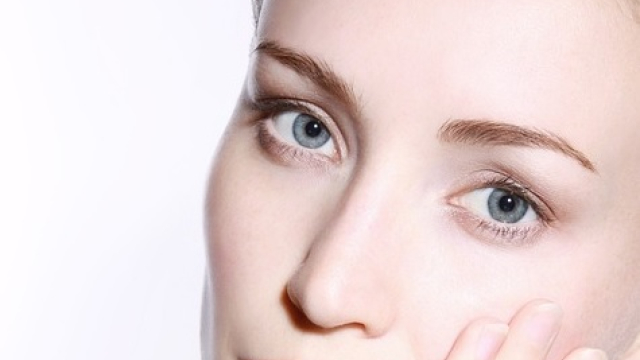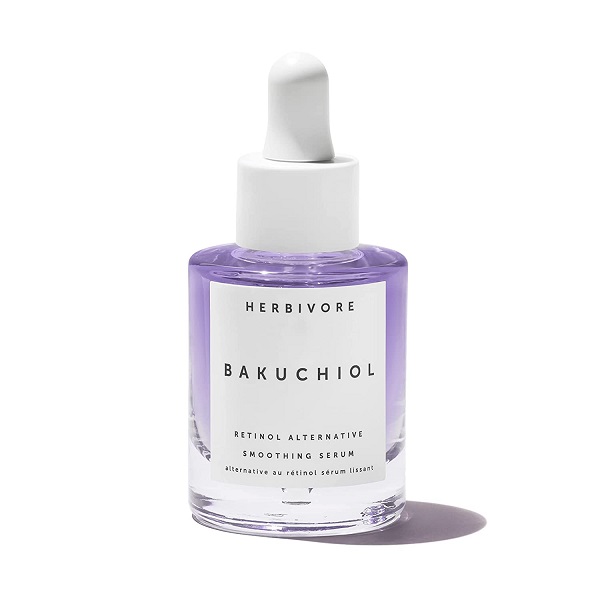BAKUCHIOL: The new natural alternative to retinol?
November 19, 2023
 Anti aging has a new hero: Bakuchiol. The almost unpronounceable active ingredient is said to be a natural twin of the popular cosmetic ingredient retinol. Unlike the synthetic ingredient, the natural version doesn’t even have any known side effects.
Anti aging has a new hero: Bakuchiol. The almost unpronounceable active ingredient is said to be a natural twin of the popular cosmetic ingredient retinol. Unlike the synthetic ingredient, the natural version doesn’t even have any known side effects.
Wrinkle-free, clear skin – that’s what retinol does. It stimulates the collagen balance, smoothes, firms and protects the connective tissue. In addition, it gets to grips with pigmentation spots and blemished skin. Unfortunately, the chemical substance also causes irritations such as redness and dryness. That’s why bakuchiol is not just for sensitive skin: The natural substance is said to be just as effective as its well-known doppelganger, but much gentler. The raw material is no stranger to traditional Chinese medicine. Now the beauty industry is also discovering its benefits.
Bakuchiol: What’s behind it?
Bakuchiol is a plant extract. It occurs naturally in the seeds and leaves of Psoralea corylifolia on the Indian subcontinent and in China. In the form of bakuchi seed oil, it is traditionally used in herbal remedies for its antioxidant and anti-inflammatory properties.
The composition of bakuchiol is not the same as that of the well-known retinol. Molecularly, they are fundamentally different. However, the effect of the substances on the skin is a similar one: Bakuchiol stimulates the so-called retinoid receptors, which are responsible for the synthesis of collagen. Cell renewal in the epidermis is also stimulated by the “bio-retinol” and thus the smoothing of the skin surface. In skin care, the extract thus acts as a retinoid analogue and perfectly imitates its action.
Proven effective?
A 2018 study, also published in the British Journal of Dermatology, compared the effectiveness of bakuchiol and retinol. According to the study, both can mitigate the signs of skin aging. Bakuchiol, however, proved to be more tolerable than classic retinol: Over 12 weeks, 44 subjects were asked to apply a cream containing 0.5 percent bakuchiol twice a day, or a cream containing an equal dose of retinol, once a day. Both substances had similar effects on wrinkles and pigmentation. However, bakuchiol resulted in less scaling, burning and itching. Studies from 2014 and 2019 show similar results.
Who is Bakuchiol suitable for?
Arguably the best attribute for an INCI ingredient: that it is suitable for everyone. Bakuchiol can be used on dry, oily and combination skin – and even sensitive skin. Only in combination with acid peelings should the active ingredient, according to expert opinion, better not be used.
Vegetarians and vegans should also be pleased that the retinol alternative is purely plant-based, unlike the original. Classical retiniode are namely contained mainly in animal substances.
Bakuchiol and natural cosmetics
Despite all the advantages, the number of cosmetic products containing bakuchiol is still quite manageable. In certified natural cosmetics, one even looks for the raw material completely in vain. The reasons for this vary. On inquiry with different manufacturers, we got the following answers:
“Bakuchiol has a similar effect (like retinol) and is very interesting for us. We have been looking for a suitable source for our products for quite some time. Unfortunately, we have not been able to find any quality that could meet the strict requirements of our company and those of our certifiers. Most of the time it is due to the manufacturing process. I suspect that is why no other natural cosmetics company uses this raw material so far. So the search continues…”, says Sebastian Georgi, Head of Research and Development, LOGOCOS Naturkosmetik AG.
The raw material was previously unknown to another manufacturer. After extensive research, the company was not satisfied with the results of its research to date. According to the laboratory, the company only uses well-researched active ingredients whose efficacy and safety have been adequately proven. In addition, bakuchiol had not yet been offered by any of the company’s raw material suppliers.
According to Laverana, the assumption is that Bakuchiol is not found in natural cosmetics because the raw material is not currently certified. On the subject of efficacy, they did not want to make a statement here.
On inquiry with NATRUE, it was confirmed to us at the time of going to press that the raw material is not currently certified and is therefore not used in products bearing the natural cosmetics label. Bakuchiol has also not yet been evaluated by the SCCS (the European Commission’s Scientific Committee on Consumer Safety). Will that change soon? “When evaluating ingredients, origin, manufacturing process and extraction methods play an important role. Without precise information on these points, it is difficult to assess how Bakuchiol might meet NATRUE’s criteria,” the press office said.
Conclusion
Bakuchiol is still a newcomer on the beauty scene in 2020, although the active ingredient was first used in 2007. In the next few years, more research needs to be done to further advance its use – especially in natural cosmetics. The natural substance definitely has potential that needs to be proven. In addition, it must be made available in appropriate quality so that it meets the requirements not only of Clean Beauty, but also of certified natural cosmetics.
For insiders: Curious people can still try the “organic retinol”: It is currently found, for example, in products of the near-natural or non-certified natural cosmetics brands Herbivore Botanicals, Bybi, Oskia and Omorovicza. (A look at the INCI reveals whether the composition of the respective product also meets personal requirements).
Buy it here:
